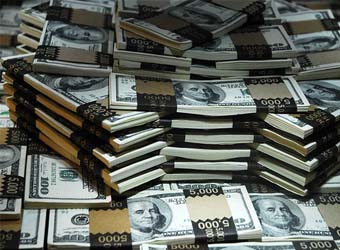The dollar hovered around a four-month low against the Japanese yen on Friday, after a vote in Washington on new healthcare legislation, which some investors viewed as a litmus test of whether U.S. President Donald Trump will be able to pass financial stimulus, was put on hold.
The dollar initially weakened slightly after Republicans in Congress said they lacked the votes to pass their proposed U.S. healthcare system overhaul, and a key committee chairman came out in opposition following Trump’s demand for a vote in a gamble that could hobble his presidency.
“I think the market is going to wait till they get some final word on it one way or the other,” said Joseph Trevisani, chief market strategist at WorldWideMarkets in Woodcliff Lake, New Jersey.
Failure to pass the proposal would hurt the dollar, at least temporarily, Trevisani said.
“If this is emblematic of something that Republicans have been campaigning for seven years now and they can’t get it done, it doesn’t bode well for the next item, which is tax reform.”
With a risk-averse mood across markets, the greenback has slipped about 1.7 percent against the yen this week.
On Friday, the dollar was down 0.14 percent at 110.77 yen.
Investors were split on whether a potential defeat for Trump would knock the dollar and stock markets – because it would suggest his inability to get reforms through Congress, or
whether it would boost them as he would then be able to move straight onto tax reforms.
“If healthcare does not pass I don’t think it’s USD negative,” Brad Bechtel, managing director at Jefferies in New York, said in a note.
While there will be a knee-jerk reaction if the bill does not pass, it will not change the underlying economic picture, he said.
The dollar index, which measures the greenback against a basket of six major currencies, was down 0.14 at 99.62.
The euro gained 0.23 percent, at $1.0805, close to a seven-week peak of $1.0825 touched on Wednesday on the view that the European Central Bank is heading toward tightening monetary policy as growth and inflation accelerates across the euro zone.
Sterling fell against the dollar and euro from the previous session’s one-month highs, as investors braced for Britain to begin next week the formal process of leaving the European Union.
Source: Reuters


